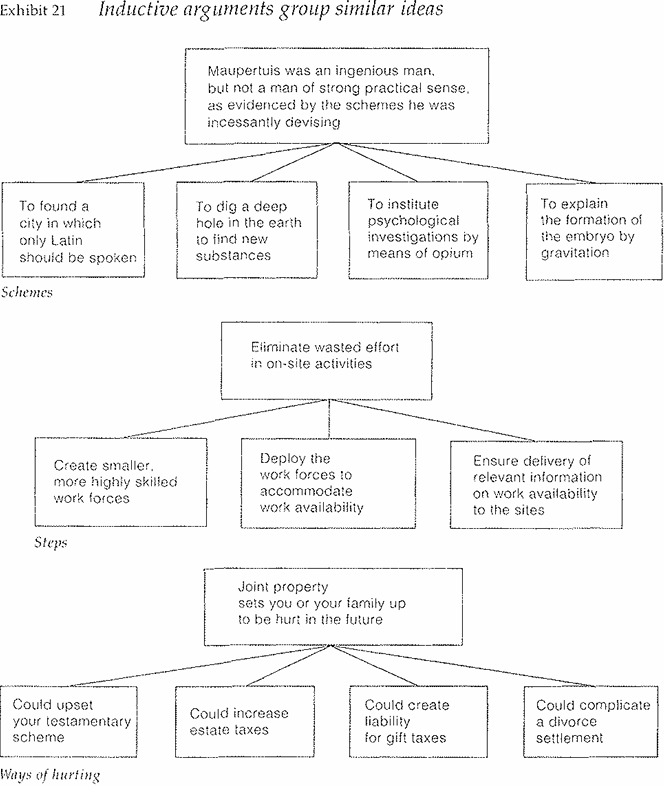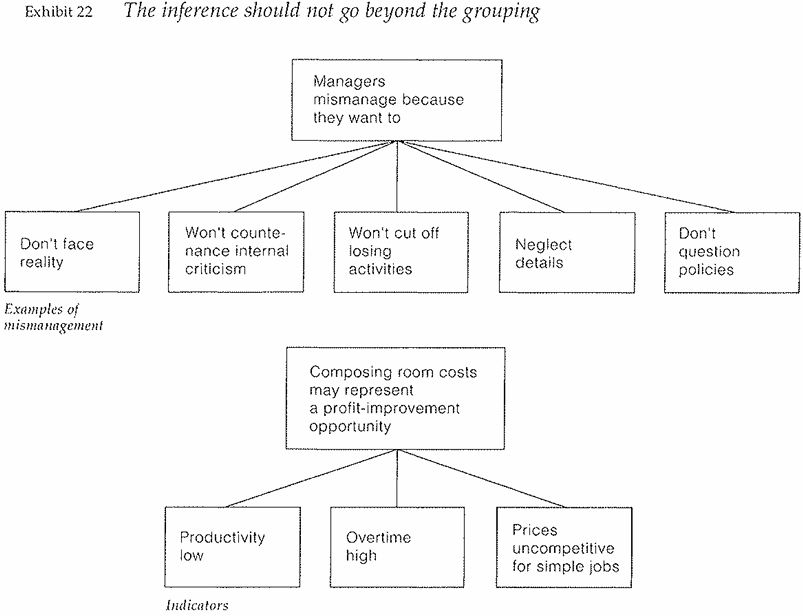
How It Works
 المؤلف:
BARBARA MINTO
المؤلف:
BARBARA MINTO
 المصدر:
THE MINTO PYRAMID PRINCIPLE
المصدر:
THE MINTO PYRAMID PRINCIPLE
 الجزء والصفحة:
69-5
الجزء والصفحة:
69-5
 2024-09-12
2024-09-12
 983
983
How It Works
The key technique is to find one word that describes the kind of idea in your grouping. This word will always be a plural noun (a) because any "kind of" thing will always be a noun, and (b) because you will always have more than one of the "kind of" idea in your grouping. "Warlike movements" is a plural noun in this sense, and so is "preparations for attack"
If you look at the inductive groupings in Exhibit 21, you will easily see that each can be described by a plural noun: schemes, steps, ways of hurting. And in each case again you can see that none of the ideas in any of the three groupings is a misfit; each fits the description of the plural noun.

The next step is always to check your reasoning, and this is done by questioning from the bottom up. For example, if you see a man who wants to found a city in which only Latin should be spoken, dig a deep hole in the center of the earth, etc., can you infer that this is an ingenious man, but not a man of strong practical sense? Yes, you can, or at least you could when the statement was originally written.
By contrast, consider the two examples in Exhibit 22. If you see managers who don't face reality, won't countenance criticism, etc., can you infer that they mismanage because they want to? Certainly not; it's sloppy reasoning.

What about the next one? If productivity is low, overtime high, and prices uncompetitive, can you infer that you have a profit-improvement opportunity? Perhaps, but I can think of three or four other things that could also be labeled indicators of a profit-improvement opportunity. In that case, you know the overall point is at too high a level of abstraction in relationship to the three points grouped below, since it does not make a statement specifically and only about them.
In fact, however, this is really a deductive argument masquerading as an inductive one, as you may have remembered. The low productivity led to high over time, which led to uncompetitive prices. (Whenever you have only one piece of evidence for anything, you are forced to deal with it deductively.) Thus, the point implied at the top is something like "Our prices are high because our productivity is low."
 الاكثر قراءة في Writing
الاكثر قراءة في Writing
 اخر الاخبار
اخر الاخبار
اخبار العتبة العباسية المقدسة


